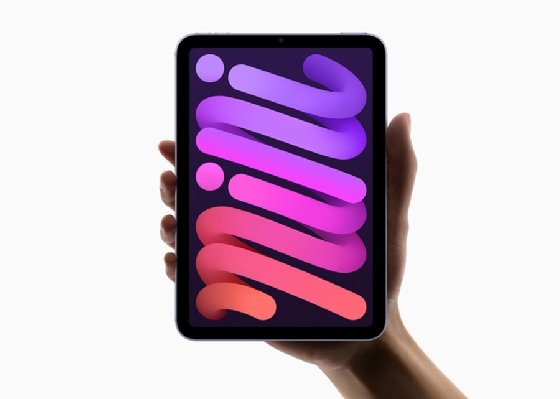
Getty Images/iStockphoto
Apple brings longer battery life, larger storage to iPhone 13
The iPhone 13 will last an hour and a half longer than its iPhone 12 counterpart and have twice the minimum storage, Apple said. The Pro Max model will offer up to 1 TB of storage.
Apple released four new iPhones with bigger batteries and more storage for the same price as last year's iPhone 12 series, making the new devices significantly better for businesspeople on the road.
At its California Streaming event this week, Apple unveiled four new models of its smartphone: the iPhone 13 mini, the iPhone 13, the iPhone 13 Pro and the iPhone 13 Pro Max. Another new helpful product to business was the sixth-generation iPad Mini with Apple's proprietary A15 Bionic chip.
According to Apple, the iPhone 13 will offer two and a half more hours of battery life per day than the iPhone 12. The iPhone 13 Mini will have an hour and a half more than the 12 Mini. The iPhone 13 Pro will last one and a half hours longer than its 12 counterpart, and the 13 Pro Max will last two and a half hours longer than the 12 Pro Max.
Many iPhone users on Twitter expressed joy at having a longer battery life, with some complaining that their iPhone 12 models did not last long enough. The exception was the iPhone 12 Pro Max, which lasted more than a day even before the iPhone 13.
"[Long-lasting devices] will become even more relevant for enterprises as commercial travel resumes again back to normal," said Nabila Popal, an analyst with IDC.
The iPhone 13 models also come with higher minimum and maximum storage capacity. The entry-level models of the 13 and 13 Mini will come with 128 GB, double the entry-level models of their 12 counterparts. The 13 Pro and 13 Pro Max will come with up to 1 TB of storage.

Gartner analyst David Smith said that the increase in minimum storage capacity would mean enterprises that tend to opt for the cheapest model of iPhone for their employees will get a more useful device.
"It's very hard to squeeze what you need into the smaller storage form factors like the 64 [GB model], which, in the Apple ecosystem, can't be expanded," Smith said. "What you buy is what you get."
Like the iPad Mini, the iPhone 13 Pro lineup will feature an A15 Bionic chip with a five-core GPU, a six-core CPU and a 16-core neural engine that can do 15.8 operations per second. Apple said the chip made it possible to optimize the battery on the new iPhone series.

Because it will ship with iOS 15, which Apple announced at its event in June, the iPhone 13 line will come with a feature that will let people opt out of advertisement tracking and a feature that will prevent trackers from profiling a user based on the smartphone's IP address.
Apple has always touted its emphasis on privacy, but that reputation was tainted when it announced plans to scan iCloud photos for child sexual abuse material last month. Then, the day before its big announcement, Apple revealed a zero-day spyware exploit called Pegasus that affected most of its iPhone and iPad models.
The iPhones weren't the only devices that might appeal to enterprises. Smith pointed to Apple's revamping of its iPad Mini line as another significant development for employees who need a small device while traveling.
The iPad Mini, which was last updated in 2019, will feature 5G connectivity and the faster performance of the A15 Bionic chip. It will appeal to the medical and aviation fields, according to Apple.
Customers will be able to preorder the iPhone 13 line on Sept. 17, and it will be generally available on Sept. 24. The iPhone 13 Mini will cost $699, the iPhone 13 $799, the iPhone 13 Pro $999 and the iPhone 13 Pro Max $1,099.
The iPad Mini will be generally available on Sept. 24 and will cost $499 and $649 for the Wi-Fi and cellular models, respectively.
Maxim Tamarov is a news writer covering mobile and end-user computing. He previously wrote for The Daily News in Jacksonville, N.C., and the Sun Transcript in Winthrop, Mass. He graduated from Northeastern University with a degree in journalism. He can be found on Twitter at @MaximTamarov.







